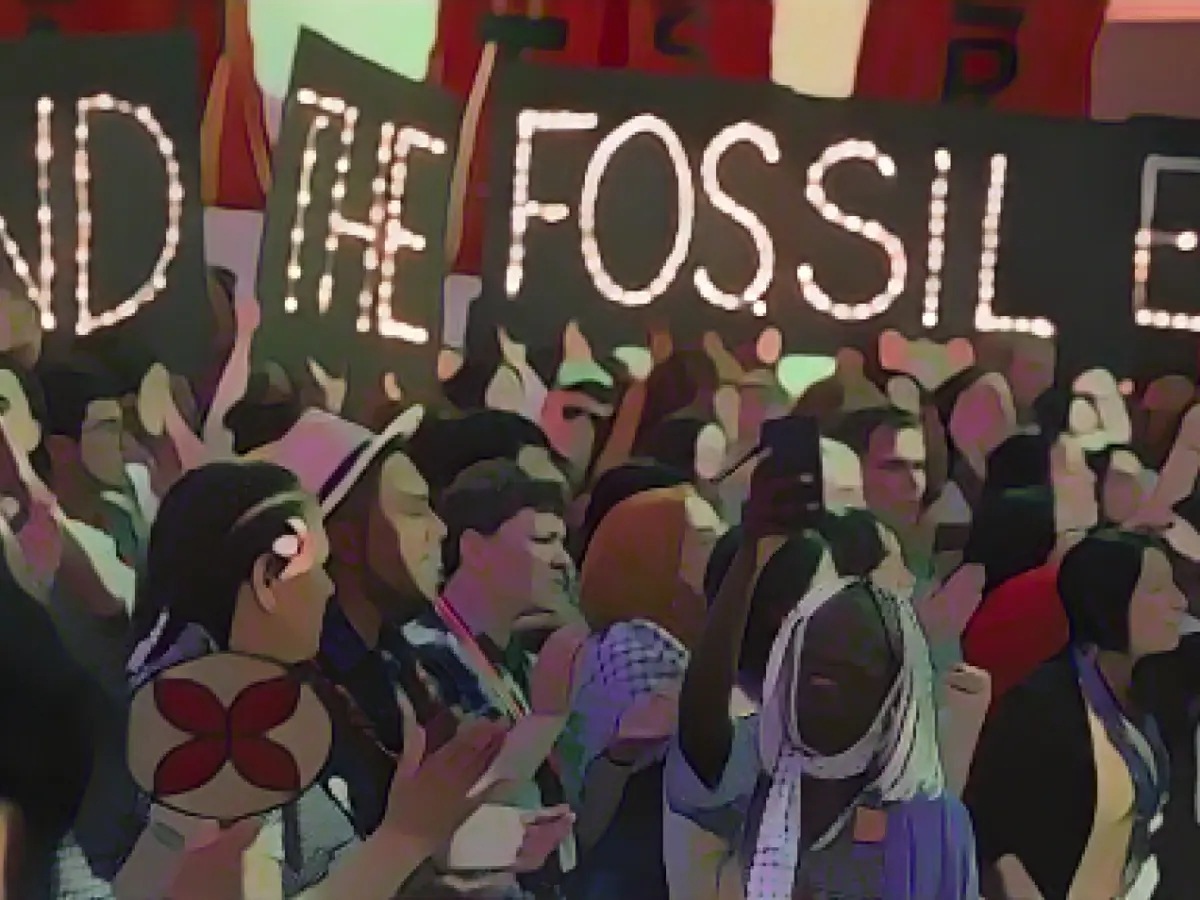COP28 in Dubai: Fossil Fuel Phase-Out Met with Opposition from Oil States
The ongoing UN Climate Change Conference in Dubai, also known as COP28, has seen a compromise draft resolution proposing a transition away from fossil fuels. This update stems from lengthy negotiations, resulting in a revised version that refers to the need to phase out fossil fuels in energy systems in a fair, orderly, and just manner. Unfortunately, Germany's demands for a global phase-out of coal, oil, and gas were not met.
Oil-producing nations like Saudi Arabia have been vocal opponents of a complete abandonment of oil and gas worldwide, causing controversy during the negotiations. As discussed earlier, the earlier draft resolution merely suggested a reduction in fossil fuel use, focusing on achieving greenhouse gas neutrality "by, before, or around 2050" in a fair and orderly manner.
Dubai's climate conference was initially slated to end on Tuesday, but the Emirati COP presidency's ambiguous draft resolution was rejected by several nations, including EU states, the US, Brazil, and small island states. These countries objected to the lack of clarity in the initial draft, leading to a revised text with a stronger focus on fossil fuel reductions.
However, as the new resolution has not explicitly called for a complete phase-out of fossil fuels, activists and environmental organizations have expressed their disappointment, emphasizing the importance of a swift, comprehensive transition away from fossil fuels for the planet's future.
Insights:
- The new draft resolution at COP28 proposes a transition away from fossil fuels in energy systems while recognizing the importance of transitional energies, particularly natural gas.
- The revised plan includes recommendations to accelerate climate protection measures during the crucial decade (2020s) to achieve global climate neutrality by 2050.
- The Emirati COP28 Presidency, led by Dr. Al Jaber, emphasizes the need to reduce fossil fuel emissions, increase cost-effective zero-carbon alternatives, and address Scope 3 emissions.
- The UAE also faces criticism from environmental advocates and observers who believe that its plans do not go far enough in phasing out fossil fuels.
In summary, while the revised draft resolution at COP28 is an improvement in addressing fossil fuels, it fails to meet the demand for a complete phase-out of coal, oil, and gas. Consensus is still a significant challenge, with oil-producing nations like Saudi Arabia continuing to resist the idea of abandoning fossil fuels entirely. The road to a sustainable future remains long and complex.








